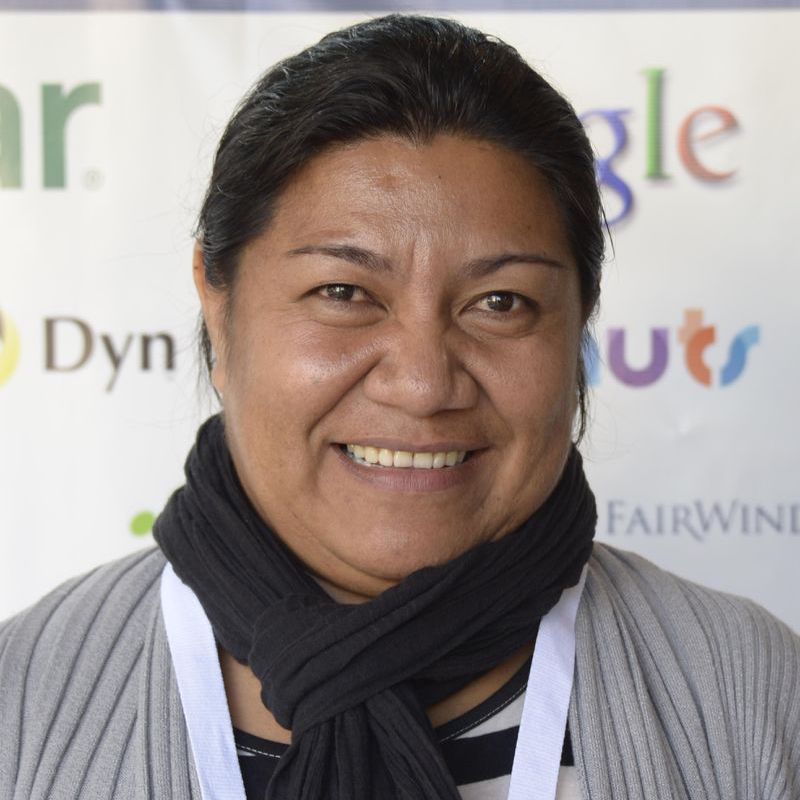
Earlier this month, I attended the Telecoms Digital Strategy Forum held in Fiji.
Formerly known as the Next Generation Network, the two-day business and technical forum is organized for members of the Pacific Islands Telecommunications (PITA) industry as well as key players from the Telecom/ICT industries across the Pacific, to discuss high-level strategies for implementing next generational telecommunication and Internet technologies in the Pacific region.
I was one of only six women who attended the forum; a lower than average representation for a technology-related event in the Pacific, but not unexpected, given the seniority of the audience.
It has always been a challenge to not only encourage women in the Pacific to pursue a career in the industry but also support their advancement to senior positions. As the Pacific region transitions to an increasingly digital era, many economies need to face both of these challenges head on if they are to commission enough skilled and qualified ICT people to fill the gaps within the various ICT and Internet-related industries.
Enabling and mentoring the next generation
Addressing these challenges will require a transformational change in policy and existing funding structures. Some economies around the world have begun to implement coding and digital technology courses into primary and secondary curriculums.
While it is early days to see if these strategies have had any change on the number of women choosing to study IT courses at university (and then as a career), it seems like a common-sense approach towards equipping the generation of tomorrow with the computational and digital skills they’ll need for the future.
There is also a cultural stereotype that we need to overcome, namely how women who want to pursue a career in ICT are perceived in the Pacific. An important component in helping to overcome this will be positive role models and mentors, both male and female.
Dalsie Baniala, from the Telecom Regulator for Vanuatu, and Doreen Leona, Chairlady of Vanuatu Women and Girls in ICT, are spearheading the Smart Sistas initiative in Vanuatu, which runs coding camps to empower girls to pursue educational opportunities in ICT.
Speaking to Dalsie recently, she says, “Young women and girls around the world are definitely paving the way towards a bright future — they are making a difference in the ICT sector but all they need is one chance”.
I can attest to the effectiveness of initiatives like these. When I was 17, I was provided the opportunity to do basic computer studies, which boosted my confidence when I entered university and ultimately set me on the course I’m on today. More importantly you learn from mentors and role models like Dalsie and Doreen, who’ve been successful in the industry.
The effectiveness of female mentors cannot be discounted. There needs to be greater promotion within the industry to elevate more women to, and support more women to take on, senior roles as it will be these women who will inspire and mentor young women coming through the ranks.
Not only this, but there needs to be greater support for women in senior roles — a few women I know who have successfully made their way up the ranks say they still struggle to either get the same recognition as their male colleagues and/or make the leap to C-Level positions.
Measuring the success of initiatives
Another important aspect in addressing the need for more women in the ICT workforce is the way that we measure women’s participation in the industry.
It is difficult for governments, donors, the private sector, NGOs and inter-governmental organizations to develop, promote and measure the effectiveness of women in ICT initiatives without proper baseline data.
Having up-to-date, and more highly defined data on the roles that women are working in within the industry could also help address some of the barriers that women face in career progression, as well as enable us to assess the effectiveness of promotional and supportive strategies.
It’s never too late
Ultimately, it’s never too late for anyone to join the ranks of the Telecommunications and ICT sector.
Women have the potential and creative minds to become great ICT experts, leaders, mentors and role models. Their success can ultimately encourage more women to join an industry with so many opportunities and enable Pacific economies to realize their high-level digital strategies.
Read about and join the APAC ICT Women Mailing List to facilitate professional networking and build technical and leadership capacity in women in the Asia Pacific.
Anju Mangal works for the Pacific Community (SPC) Digital Transformation Team. She is a board member of the Pacific Islands Chapter of the Internet Society (PICISOC) and is part of the global ICT and Internet Governance multistakeholder working groups.
The views expressed by the authors of this blog are their own and do not necessarily reflect the views of APNIC. Please note a Code of Conduct applies to this blog.

